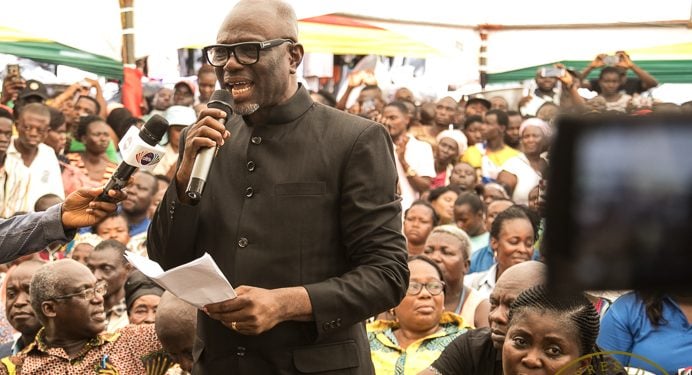The Ghana Union of Traders’ Associations (GUTA) has publicly disavowed recent statements made by its President, Dr. Joseph Obeng, advocating for the continued implementation of the Electronic Transfer Levy (E-Levy). While Dr. Obeng posited that the E-Levy could provide a sustainable funding source for small and medium-sized enterprises (SMEs) and the proposed Women’s Development Bank, GUTA unequivocally stated that these views represent his personal opinion and not the official stance of the organization. The association emphasized its respect for Dr. Obeng’s individual viewpoint but stressed the importance of distinguishing between personal opinions and the collective position of GUTA. This clarification underscores the internal diversity of thought within the organization regarding the controversial tax policy.
GUTA’s press release, issued in response to Dr. Obeng’s comments, highlighted the association’s commitment to supporting initiatives that promote business growth and empower women entrepreneurs. While acknowledging the need for innovative financing mechanisms to achieve these goals, GUTA maintains that the responsibility for determining revenue generation strategies ultimately lies with the government. This careful delineation of responsibilities underscores GUTA’s focus on representing the broader interests of its members while respecting the government’s mandate in fiscal policy. The association’s statement subtly navigates the sensitive political landscape surrounding the E-Levy, avoiding a direct endorsement or condemnation of the tax.
Dr. Obeng’s pro-E-Levy stance stands in stark contrast to the position of the opposition National Democratic Congress (NDC), which has pledged to abolish the tax if elected. The NDC has consistently criticized the E-Levy, characterizing it as an undue financial burden on Ghanaians. This divergence of opinion between GUTA’s president and a major political party highlights the polarized nature of the debate surrounding the E-Levy. The tax has become a key point of contention in the ongoing political discourse, with proponents arguing for its potential to fund development and opponents criticizing its impact on citizens’ disposable income.
The E-Levy, a 1% tax on electronic transactions, was introduced by the previous New Patriotic Party (NPP) government amidst considerable public resistance. Businesses, in particular, have voiced concerns about the levy’s potential to stifle economic activity. Dr. Obeng’s argument for retaining the E-Levy centers on its potential to generate a consistent revenue stream for developmental projects, including initiatives aimed at empowering women in trade and supporting SMEs. He suggests that this dedicated funding source could be instrumental in fostering economic growth and reducing gender disparities in the business sector. However, this view remains contested, with critics arguing that the tax disproportionately affects low-income earners and small businesses.
GUTA’s prompt disassociation from Dr. Obeng’s comments underscores the organization’s sensitivity to the diverse opinions within its membership and its commitment to maintaining neutrality in politically charged debates. This careful positioning allows GUTA to continue advocating for the interests of traders without alienating members who hold differing views on the E-Levy. The incident also highlights the challenges faced by representative organizations in navigating complex policy issues where internal disagreements may exist.
The E-Levy debate reflects a broader discussion about the balance between generating government revenue and minimizing the tax burden on citizens and businesses. While the government seeks to fund essential services and development projects, the public and business community are concerned about the potential negative impacts of increased taxation. Finding a sustainable and equitable solution that addresses both these concerns remains a significant challenge for policymakers in Ghana. The future of the E-Levy, and its potential impact on the Ghanaian economy, remains a topic of ongoing debate and uncertainty. The upcoming elections may well determine the fate of this controversial tax policy.


